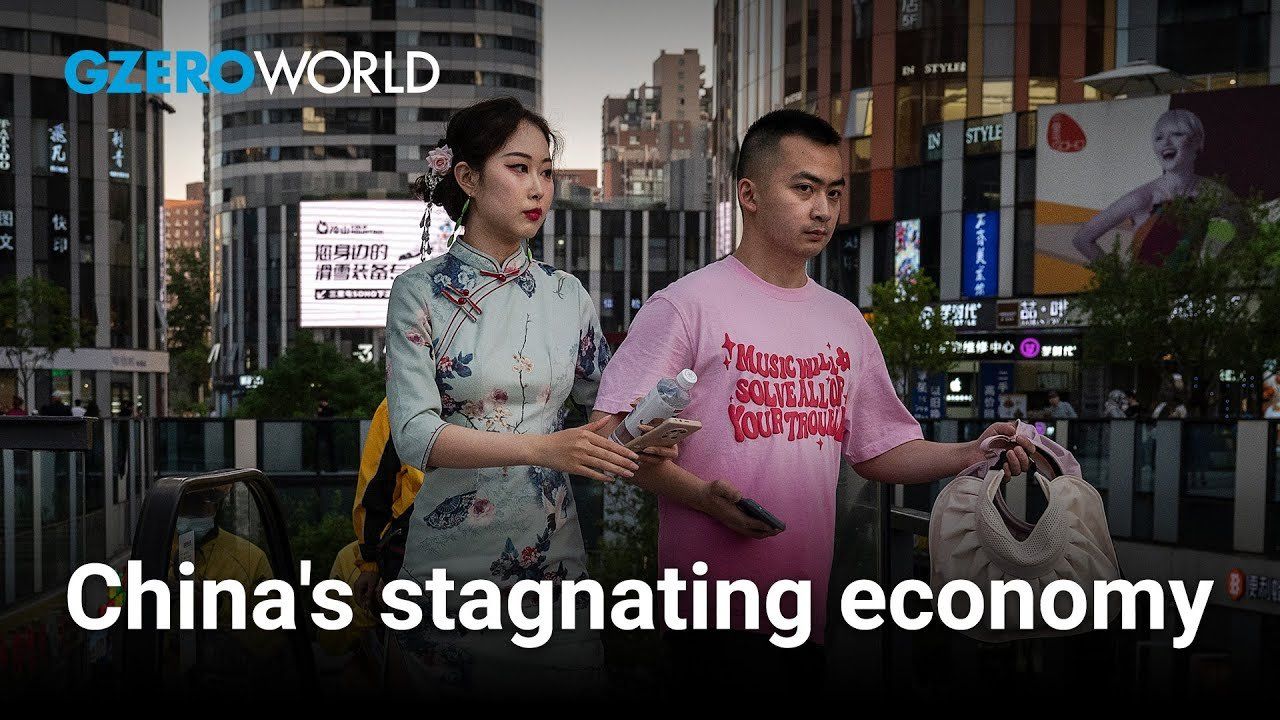
On GZERO World, Ian Bremmer asked economist and author Dambisa Moyo to grade the health of the global economy amid ongoing geopolitical crises and Europe and the Middle East, stalled Covid recovery, and a major economic slowdown in China. Her answer is more optimistic than you might expect, given so much uncertainty and volatility around the world. It’s true that the US economy has shown surprising resiliency, which is why the world avoided a global recession in 2023.
But China’s economic slowdown is still a significant drag on the overall global outlook. Structural issues within the Chinese economy–a collapsing real estate sector, high levels of local government debt, the flight of foreign investment–have a major impact on the world’s finances because of China’s role as the largest foreign direct investor to the developing world, as well many developed economies. But so far, the policy response from the central government has been relatively slow and piecemeal compared to expectations.